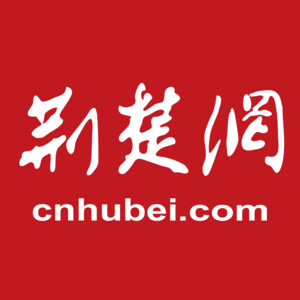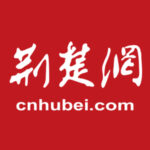On September 17, during an inspection of state-owned enterprise reform and innovation development, it was emphasized the need to thoroughly implement important directives on the reform and development of state-owned enterprises, accurately grasp the complex and profound changes in domestic and international development situations, and more scientifically and pragmatically plan and promote the reform of state-owned enterprises and the high-quality development of the state-owned economy with a global perspective, forward-thinking, and historical responsibility.
The inspection included visits to several major enterprises. At Hubei United Investment Group, a detailed understanding of the company’s business layout and transformation development was conducted. It was required that the enterprise accelerate the reconstruction of business models and reshape growth momentum, especially by actively adapting to the basic trend of domestic and international development zones transforming into “venture capital incubation parks.” By guiding the establishment of venture capital and cooperating to build incubation platforms, a favorable localized innovation ecosystem should be constructed to more effectively gather high-tech talent, high-value patents, and high-growth enterprises globally. At Hubei Cultural Tourism Group, the promotion of integrated cultural and tourism development was discussed. It was emphasized that the enterprise should make good use of Hubei’s unique landscape resources and rich historical and cultural resources, vigorously cultivate new formats and scenarios such as “cultural tourism + wellness, leisure, sports, etc.,” and expand new products and services like “cultural tourism + film, animation, cultural creativity, etc.,” striving to create a series of globally impactful cultural tourism projects to better meet the new demands of the people in the new era for “great health, new cultural tourism, and broad entertainment” consumption. At Yangtze River Industrial Investment Group, the investment operation and reform innovation situation were deeply understood. It was required that the enterprise fully leverage the functions of the provincial state-owned capital operation platform, grasp the business model of “investing in the real economy and creating value forms,” and comprehensively use multiple investment methods such as “venture capital, industrial investment, corporate mergers and acquisitions, and asset restructuring” to further improve the efficiency of state-owned capital investment and operation, better leading, demonstrating, and driving the transformation and upgrading of traditional industries, the cultivation and growth of emerging industries, and the forward-looking layout of future industries.
During the symposium, work reports from the State-owned Assets Supervision and Administration Commission and various provincial state-owned enterprises were heard, and relevant requirements for further deepening reform and development were put forward for each enterprise. It was pointed out that currently, the global scientific and technological innovation landscape is rapidly restructuring, economic and political patterns are deeply adjusting, and uncertain and unpredictable factors in the international situation are increasing. The main social contradictions, overall supply and demand patterns, factors supporting development, the underlying logic driving growth, and the international environment for integrating into the world economic cycle have all undergone complex and profound changes. It is necessary to multi-dimensionally study and judge domestic and international development situations, accurately respond to current risks and challenges, and strive to promote high-quality development by relying on further comprehensive deepening of reform.
It was emphasized that to promote the high-quality development of state-owned enterprises and the state-owned economy, several key measures must be taken: First, accelerate the optimization of the strategic layout of state-owned capital, adhering to the principle of strategic necessity and livelihood security, continuously optimize the regional, field, and industry layout of state-owned assets and enterprises, and promote state-owned enterprises at all levels, especially at the city and county levels, to optimize stock, reduce hierarchies, and improve efficiency. Second, focus on the functional positioning of state-owned enterprises, further strengthen policy matching and resource integration, implement differentiated evaluations “one enterprise, one policy,” guide enterprises to focus on their main responsibilities and businesses, continuously enhance core functions, and improve core competitiveness. Third, strive to improve the governance system of state-owned enterprises, promote enterprises to accelerate the construction of modern corporate governance structures, establish flat and efficient management levels and market-oriented, professional investment decision-making mechanisms, and continuously improve the modernization level of operation and management. Fourth, vigorously promote enterprise innovation and development, guide enterprises to build innovative salary distribution systems and effective internal constraint mechanisms, actively carry out product technological innovation, business model innovation, and operation management innovation, and reconstruct new advantages for participating in domestic and international market competition. Fifth, continuously deepen investment system reform and the management reform of state-owned “three capitals,” further innovate the investment and financing models of state-owned enterprises, further improve the investment and operation efficiency of state-owned enterprises, and strive to achieve overall balance and良性循环 of input and output. Sixth, follow the laws of enterprise operation, market operation, and party and government management, accelerate the cultivation of modern, high-quality entrepreneur clusters, and provide key support and organizational guarantee for vigorously deepening the reform of state-owned assets and enterprises and for the high-quality development of the state-owned economy.
The Vice Governor participated in the symposium.


